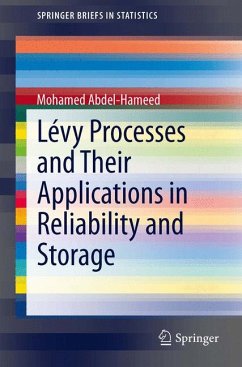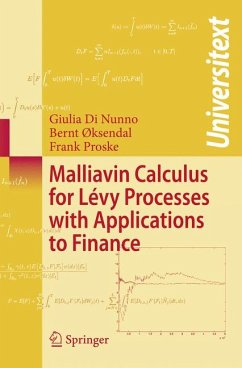
Queues and Lévy Fluctuation Theory (eBook, PDF)
Versandkostenfrei!
Sofort per Download lieferbar
44,95 €
inkl. MwSt.
Weitere Ausgaben:

PAYBACK Punkte
22 °P sammeln!
The book provides an extensive introduction to queueing models driven by Lévy-processes as well as a systematic account of the literature on Lévy-driven queues. The objective is to make the reader familiar with the wide set of probabilistic techniques that have been developed over the past decades, including transform-based techniques, martingales, rate-conservation arguments, change-of-measure, importance sampling, and large deviations. On the application side, it demonstrates how Lévy traffic models arise when modelling current queueing-type systems (as communication networks) and include...
The book provides an extensive introduction to queueing models driven by Lévy-processes as well as a systematic account of the literature on Lévy-driven queues. The objective is to make the reader familiar with the wide set of probabilistic techniques that have been developed over the past decades, including transform-based techniques, martingales, rate-conservation arguments, change-of-measure, importance sampling, and large deviations. On the application side, it demonstrates how Lévy traffic models arise when modelling current queueing-type systems (as communication networks) and includes applications to finance.
Queues and Lévy Fluctuation Theory will appeal to postgraduate students and researchers in mathematics, computer science, and electrical engineering. Basic prerequisites are probability theory and stochastic processes.
Queues and Lévy Fluctuation Theory will appeal to postgraduate students and researchers in mathematics, computer science, and electrical engineering. Basic prerequisites are probability theory and stochastic processes.
Dieser Download kann aus rechtlichen Gründen nur mit Rechnungsadresse in A, B, BG, CY, CZ, D, DK, EW, E, FIN, F, GR, HR, H, IRL, I, LT, L, LR, M, NL, PL, P, R, S, SLO, SK ausgeliefert werden.












